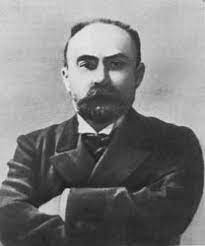Plekhanov, Georgi V.

Bio: (1857-1918) Russian philosopher and social theorist. Georgi Valentinovich Plekhanov (Георгий Валентинович Плехaнов) studied at the Mining Institute in St. Petersburg but left Russia due to his political activities. He was an active member or founder of several Marxist organizations in Russia and Switzerland. He never formally studied sociology, but he wrote several books on Marxism, socialism, and the sociology of art. His greatest contribution is the further development of Marx's interpretation of society, and above all historical materialism. Plekhanov starts from the simple dichotomy of the economic base and social superstructure, introduced by historical materialism, and further elaborates this division by creating a new theoretical scheme - a five-step scheme in which there are complex deterministic relations between each of the spheres: 1) productive forces, 2) economic relations; 3) socio-political organization; 4) social psychology and 5) ideologies. It is the productive forces that condition economic relations, which further determine the socio-political order. Social psychology derives partly directly from economic relations, and partly from the socio-political system. Ideologies are created by reflecting social psychology.
Plekhanov believes that a materialist explanation of history requires determining the factors that affect the economy of a particular society, in order to understand the further development of that society. Geographical, geological, and ecological properties of an environment (mountains, rivers, seas, ores, flora, and fauna) determine the development of productive forces that will be available to society. The more diverse the properties of the geographical environment, the better the basis for the development of productive forces. With the development of primitive agriculture came slavery, because pastoral tribes killed their captives because they could not use their labor, while agricultural tribes turned captives into slaves so that they could cultivate the land instead of the victors. With the appearance of slavery, for the first time, there was the exploitation of other people's labor and the first class division. A developed slave-owning system affects the overall economic relations, and thus determines the form of socio-political organization. All ancient states, regardless of differences, had a political organization that protected the interests of only free people. As an example that the ideology is based on social psychology, Plekhanov cites French romanticism, whose most important representatives acted completely independently, but came up with the same ideas.
Fields of research
Agriculture Art Classes Economy Exploatation, Economic Freedom Geography History Ideology Psychology Slavery Socialism Tribe WorkTheoretical approaches
Marxism – Historical MaterialismMain works
К развитию монистического взгляда на историю (1894);
Анархизм и социализм (1895);
К вопросу о роли личности в истории (1898)
Основные вопросы марксизма (1908).
Works translated into English:
The Development of the Monist View of History (1947, in Russian 1894);
On the Question of the Individual's Role in History (1961, in Russian 1898);
Fundamental Problems of Marxism (1992, in Russian 1908);
Selected Philosophical Works: In Five Volumes (2004);
Anarchism and Socialism (2015, in Russian 1895).

